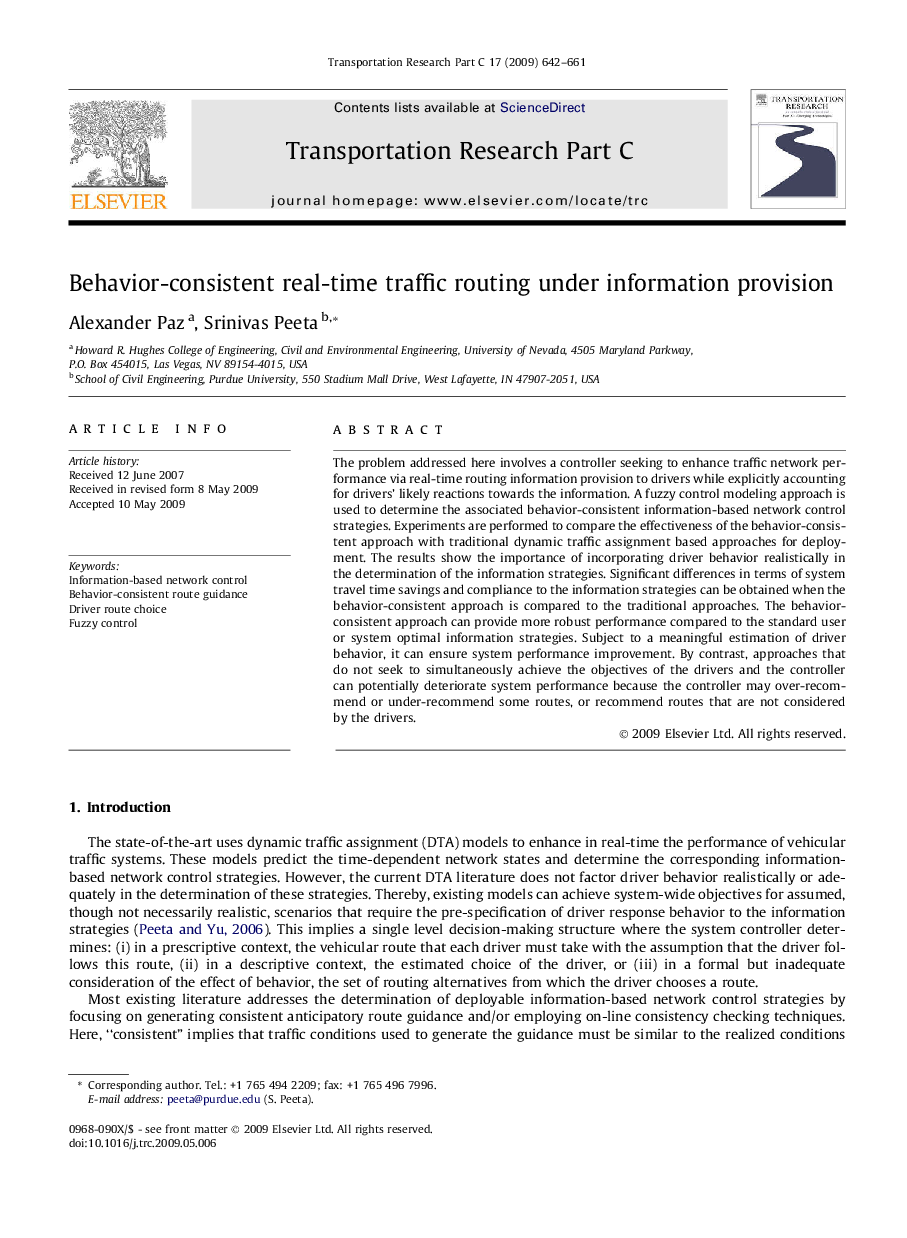| Article ID | Journal | Published Year | Pages | File Type |
|---|---|---|---|---|
| 526644 | Transportation Research Part C: Emerging Technologies | 2009 | 20 Pages |
The problem addressed here involves a controller seeking to enhance traffic network performance via real-time routing information provision to drivers while explicitly accounting for drivers’ likely reactions towards the information. A fuzzy control modeling approach is used to determine the associated behavior-consistent information-based network control strategies. Experiments are performed to compare the effectiveness of the behavior-consistent approach with traditional dynamic traffic assignment based approaches for deployment. The results show the importance of incorporating driver behavior realistically in the determination of the information strategies. Significant differences in terms of system travel time savings and compliance to the information strategies can be obtained when the behavior-consistent approach is compared to the traditional approaches. The behavior-consistent approach can provide more robust performance compared to the standard user or system optimal information strategies. Subject to a meaningful estimation of driver behavior, it can ensure system performance improvement. By contrast, approaches that do not seek to simultaneously achieve the objectives of the drivers and the controller can potentially deteriorate system performance because the controller may over-recommend or under-recommend some routes, or recommend routes that are not considered by the drivers.
